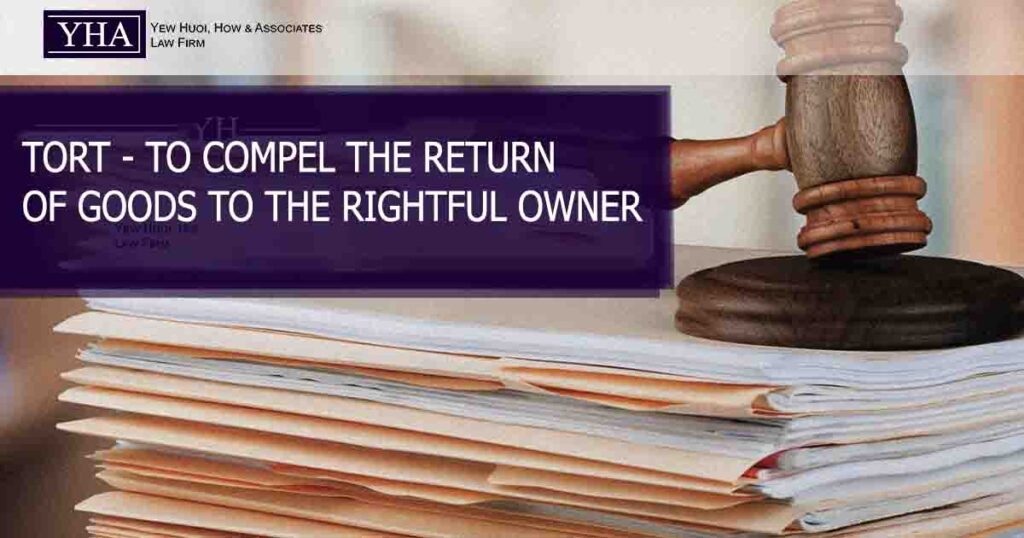A and B entered into a business agreement. To save up start-up costs, A brought his own equipment to the business premises owned by B. However, the agreement broke down and B refused to allow A to enter into the premises to take back his goods.
Q: Can A get back his goods and how?
A: Yes. However, A must first prove he is the rightful owner of the goods. He can support his ownership by showing the invoices, proof of purchases and delivery orders of the goods.
Q: What happens if B refused to return the property to A?
A: A can apply to court for mandatory injunction to compel B to return the goods. A mandatory injunction is a form of specific relief that redresses the losses suffered by rightful owner. As long as there is evidence that B has actual possession and control of the goods belonging to A, he is bound to return the property to the rightful owner A. Saying I don’t know where the good is isn’t enough.
Q: What are the relevant sections that govern mandatory injunction in Malaysia? A: Sections 4, 9 & 53 of Specific Relief Act 1950.

